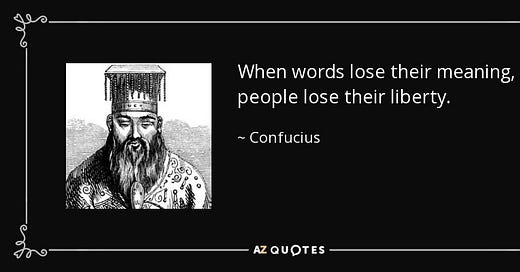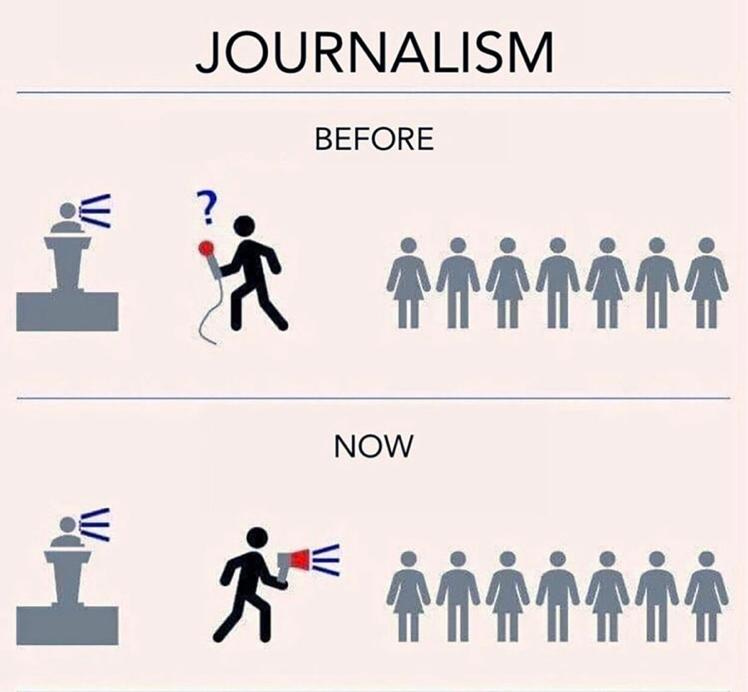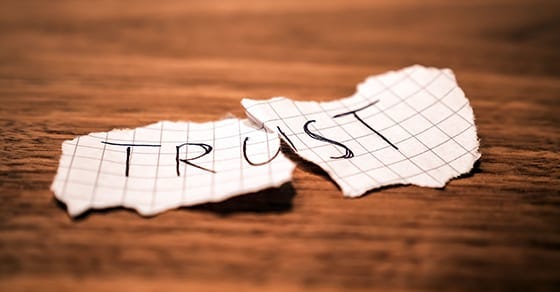Let’s focus for a minute on how things are said, rather than on actual content. A game of conjugation.
I have reconsidered the matter, you have changed your mind, they have gone back on their word.
I am an independent thinker, you are eccentric, they are abnormal.
I hold a firm position, you are headstrong, they are stubborn. This last one refers to people who probably won't change their mind easily, using synonyms in content but emotional antonyms.
Emotive conjugation is also known as Russell Conjugation, named after British philosopher and mathematician Bertrand Russell. It's nearly impossible to communicate without passing judgment in some shape or form. Linguistic habits and 'aligned standards of normality' often form, unite or divide groups of friends, echo-chambers, societal cultures or corporate values.
Let’s take it one step further:
I spontaneously postponed my submission, you altered the deadline, they were late and can't be counted on. Swaying an audience's judgment, without any need to falsify facts. Game of words aside, when this can occasionally lead or steer opinions towards a different proposed actionable outcome or policy, it starts to matter.
‘Currently undocumented immigrants’ or simply ‘illegals’ —> Path to citizenship or deportation?
Protests or riots? Whistle blower hero or traitor? Does the 'World Bank' maintain stability in Africa or the status quo? (Ooh, I think I've officially started nudging the Overton Window with that one. First of many.)
Building upon my last post, I wonder what role language plays in legacy media losing both its viewers and its ethical credibility over time. It seems that many people have abandoned ship and started to seek out different ‘moral authorities’ (not always for the better..) than the ones that traditionally had the monopoly on the united (and uniting) descriptive lens through which we as a society agreed that things should generally be perceived. The spectrum of acceptable opinion. The Overton Window.
Did we shift from reporters aspiring to be as objective as possible, to incrementally increased and euphemistically used complexity in language as an instrument of potential obfuscation? To be clear, I don’t know, but like my main man Confucius the Chinese philosopher said many thousands of years ago:
Deep. But I digress..
It is my opinion that the legacy media carries with it a credibility and an authority that is unfortunately no longer deserved. That said, I am happy that we live in a press-controlled state and not with a state-controlled press, where a politician can lose his job due to a journalist but not vice versa. I think that’s a very important mechanism of control that protects our shared values (hence the blog post, duh). But I think it’s time to have more profound debates about who keeps accountable those that claim to keep democratic accountability.
Press is either state-owned, causing certain inherent inclinations, or run by privately owned companies. Big corporations, with employees, owners, certain dogmas, a company culture and a brand. Not perpetually angelic, transparent, fair and balanced arbiters of truth, but companies with revenue targets, KPIs, shareholders, just like every other company. And how did they do the last 30 years? Is democracy more resilient now thanks to them? Or is it slowly crumbling away in an ominous fashion? Somewhere in between, perhaps? Add polarization running rife, some abrasive de-platforming of dissident voices and some selective Big Tech fact-checking sprinkles to the mix, and what we have is a clusterfuck, a chaotic powderkeg, ready to erupt. It appears they didn’t do a very adequate* job. (*unless we redefine how it should be measured, obviously. A classic move.) Phrased more neutrally, what potential is there for improvement?
Media corporations don’t control the establishment, they have become a part of the establishment over time. This is not necessarily a problem. The issue is that, unlike other arms of government, they have tremendous power, but can always deny responsibility in a way that the legislative, executive and judicial arms cannot. Series of articles can lead to impacting voting behavior, put pressure on policy, or worst case stone someone’s reputation to death over time but that responsibility can always be diminished or be dubbed unintentional, because it is more often than not a slow and gradual process.
I feel that I should clarify that I don’t necessarily view the world as portrayed in this cartoon. It could be much more positive. (Or more negative, where the person with the megaphone stands behind the politician?) I am merely on a quest for truth. I feel that many people are. And that’s why I think it’s crucial to start taking steps to minimize the divergence between finding information and the interpretation thereof. This is too important to leave to chance, goodwill or even a yes-no argument.
To me, the decline in audience numbers fundamentally represents declining levels of trust. So they simply need to do, to be, better. And to borrow from Balaji Srinivasan, ‘we didn’t ask Blackberry, Blockbuster, Western Union, or Barnes&Noble to do better’. They were replaced by better companies or better technology, removing single points of failure and control, making more resilient and participatory systems, reducing the mere need for trust by not having to rely on it in the first place.
How can we use technology to disrupt and improve the fragile model of needing to trust the supposed authority of Legacy Media and Big Tech to protect against group-think, to remove or simply acknowledge bias, to stop things from being cancelled that turned out to be true, to create some robust accountability for who was wrong? Is there a mechanism that rewards accountability, reputation, credibility and conviction? That drastically improves transparency, making it the rule rather than the exception?
Maybe attention isn’t the scarcest asset in the world after all, maybe it’s legitimacy. And I unironically think this is where the blockchain comes in.
Nils







Nils aka A.Hayes. Great write up! Request for next post: deeper down the legitimacy rabbit hole.
You’re so right about the media…